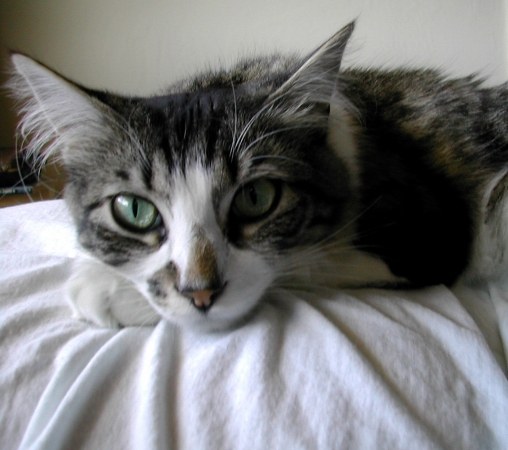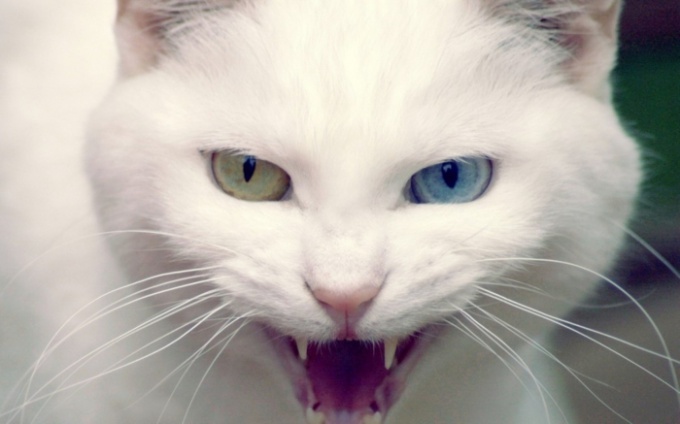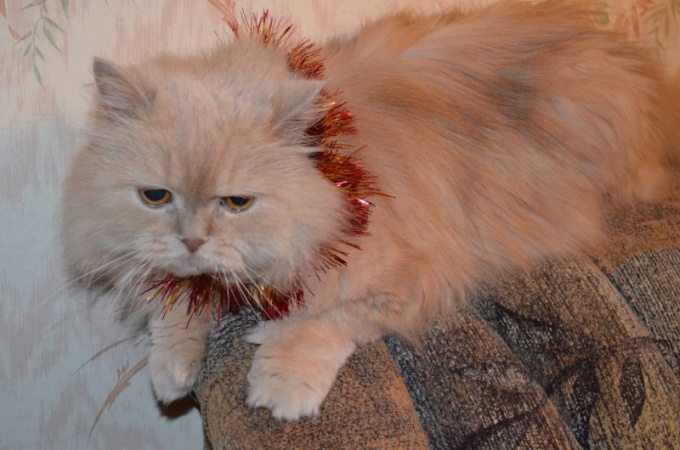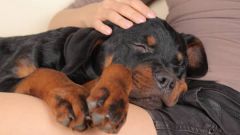The cat will need to be adequately prepared for castration. During the operation the bladder and intestinal tract should be empty so 12 hours prior to castration of a cat cannot be fed, and for an hour or even water.


If the doctor after the surgery treated the wound with a spray "Terramycin" or "Alumetal", they remain on the skin for some time, in this case, to treat the wound is not necessary. If this treatment was not, the wound must be rinsed with 3% hydrogen peroxide or furatsilina solution by dissolving one tablet in a glass of water. It is not recommended to treat the wound or brilliant green alcohol solution of iodine, they can dry up the skin.

That the cat did not disturb the wound, licking her on the neck he needs to wear a special collar that will not allow him to reach the back of the body. Remove the collar just for the food. You must make sure that the cat does not RUB against the floor of the rear part of the body.
The fillers used at this time should be soft, not to disturb the wound. Better if he is white or at least light shade, in this case, the owners will be able to notice the onset of the bleeding.
Owners should be alerted to the increased body temperature of the animal. The normal temperature for a cat is 38-39оС. In the first three days she will inevitably be increased, but if the temperature has not decreased and on the fourth day, is an occasion for immediate access to a vet. All the more reason to show the animal to the doctor if the wound began to fester. In this case, the vet will prescribe an antibiotic.
In the first days after surgery can be observed and a lower temperature (less than 37 degrees), Pets sleeping. The cat should be warm, applying a heating pad and rubbing the legs. If that doesn't work, the cat is still not moving and not waking up, I need to call the vet or take the cat to the clinic.
To take the cat to the clinic is necessary and in that case, if the seam starts to bleed.
After castration cat can suffer from constipation. Constipation is inevitable within the first two to three days after anesthesia, but if the chair the cat is missing more than four days, you should start to give him a laxative. Of course, we cannot do it without consulting with the vet, only he can choose the right drug, considering the condition and characteristics of an organism of a specific animal.

Treatment of the wound

If the doctor after the surgery treated the wound with a spray "Terramycin" or "Alumetal", they remain on the skin for some time, in this case, to treat the wound is not necessary. If this treatment was not, the wound must be rinsed with 3% hydrogen peroxide or furatsilina solution by dissolving one tablet in a glass of water. It is not recommended to treat the wound or brilliant green alcohol solution of iodine, they can dry up the skin.

That the cat did not disturb the wound, licking her on the neck he needs to wear a special collar that will not allow him to reach the back of the body. Remove the collar just for the food. You must make sure that the cat does not RUB against the floor of the rear part of the body.
The fillers used at this time should be soft, not to disturb the wound. Better if he is white or at least light shade, in this case, the owners will be able to notice the onset of the bleeding.
Possible complications
Owners should be alerted to the increased body temperature of the animal. The normal temperature for a cat is 38-39оС. In the first three days she will inevitably be increased, but if the temperature has not decreased and on the fourth day, is an occasion for immediate access to a vet. All the more reason to show the animal to the doctor if the wound began to fester. In this case, the vet will prescribe an antibiotic.
In the first days after surgery can be observed and a lower temperature (less than 37 degrees), Pets sleeping. The cat should be warm, applying a heating pad and rubbing the legs. If that doesn't work, the cat is still not moving and not waking up, I need to call the vet or take the cat to the clinic.
To take the cat to the clinic is necessary and in that case, if the seam starts to bleed.
After castration cat can suffer from constipation. Constipation is inevitable within the first two to three days after anesthesia, but if the chair the cat is missing more than four days, you should start to give him a laxative. Of course, we cannot do it without consulting with the vet, only he can choose the right drug, considering the condition and characteristics of an organism of a specific animal.






